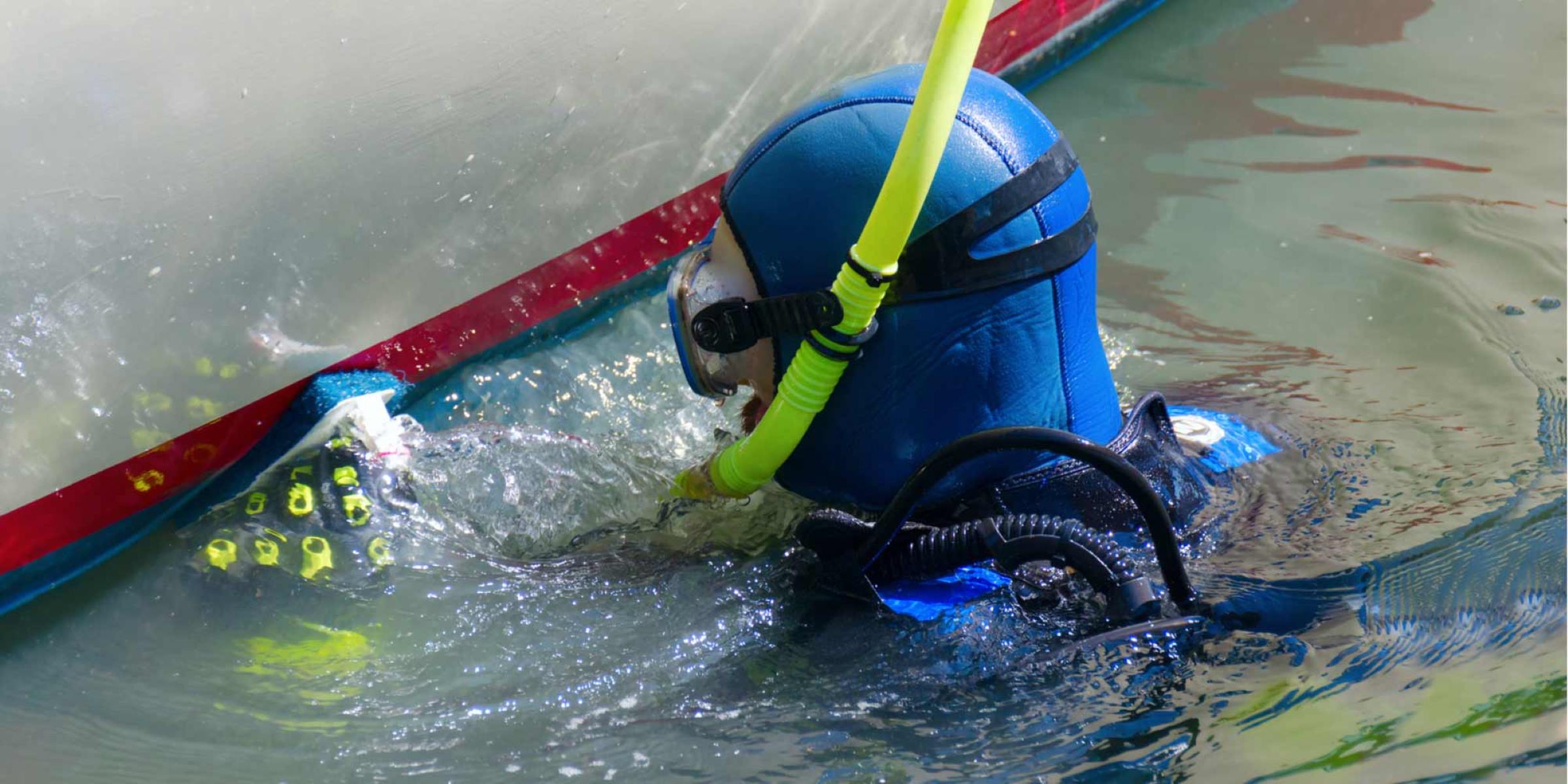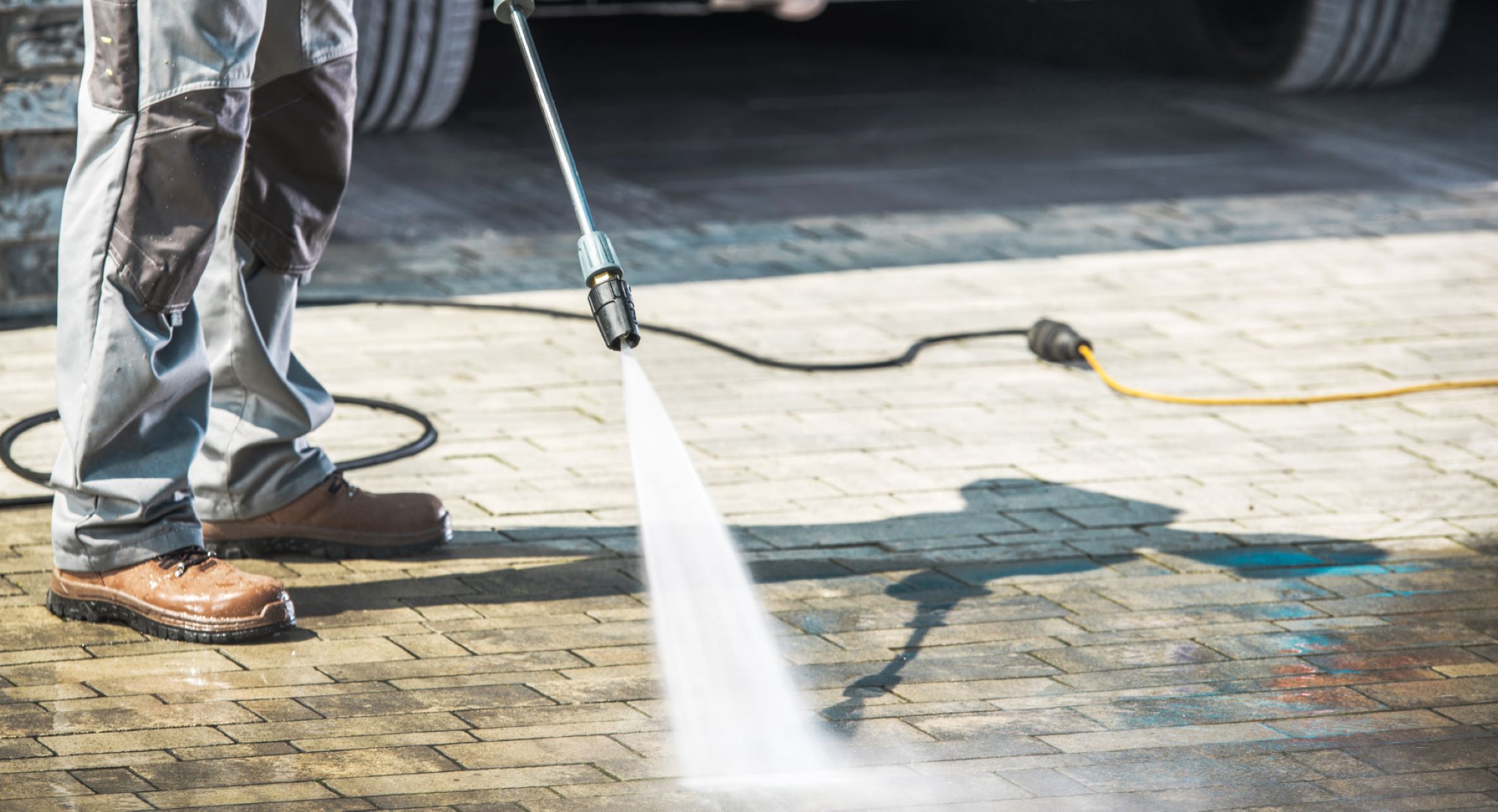Home>Environment>The Ultimate Eco-Friendly Hull Cleaning Guide: Protecting The Environment Like A Pro!


Environment
The Ultimate Eco-Friendly Hull Cleaning Guide: Protecting The Environment Like A Pro!
Published: February 17, 2024
Learn how to protect the environment with our ultimate eco-friendly hull cleaning guide. Discover pro tips for sustainable boat maintenance.
(Many of the links in this article redirect to a specific reviewed product. Your purchase of these products through affiliate links helps to generate commission for Regretless.com, at no extra cost. Learn more)
Table of Contents
Introduction
Maintaining a clean hull is crucial for the performance and longevity of any watercraft. However, traditional hull cleaning methods often involve the use of harsh chemicals that can have detrimental effects on the marine environment. As a responsible boat owner or marine enthusiast, it's essential to prioritize eco-friendly hull cleaning practices to minimize the ecological impact while keeping your vessel in top condition.
In this comprehensive guide, we'll delve into the world of eco-friendly hull cleaning, exploring the importance of sustainable practices and providing valuable insights into effective and environmentally conscious cleaning methods. Whether you're a seasoned sailor, a passionate angler, or a casual boater, embracing eco-friendly hull cleaning techniques is not only a testament to your environmental stewardship but also a means of safeguarding the delicate balance of marine ecosystems.
By the end of this guide, you'll be equipped with the knowledge and tools to approach hull cleaning with a pro-level environmental consciousness. Let's embark on this enlightening journey and discover how you can protect the waters you love while ensuring the optimal performance and durability of your watercraft.
Understanding the Importance of Eco-Friendly Hull Cleaning
Maintaining a clean hull is not just a matter of aesthetics; it directly impacts the overall performance and environmental footprint of your watercraft. The hull, being the submerged portion of a boat, is constantly exposed to the aquatic environment, accumulating marine growth such as algae, barnacles, and other organisms. While this growth may seem harmless, it can significantly increase drag, leading to higher fuel consumption and reduced speed. In addition to the adverse effects on performance, the accumulation of marine organisms on hulls can introduce non-native species to different marine environments, disrupting the local ecosystem's delicate balance.
Traditional hull cleaning methods often involve the use of toxic antifouling paints and harsh chemical cleaners, which can leach harmful substances into the water, posing a serious threat to marine life. The release of these chemicals not only damages the immediate aquatic environment but also contributes to the broader issue of water pollution. Furthermore, the accumulation of toxic substances in marine ecosystems can have far-reaching implications for aquatic organisms, including fish, shellfish, and other marine life, as well as the overall health of the marine environment.
Embracing eco-friendly hull cleaning practices is paramount for mitigating these detrimental effects. By opting for sustainable cleaning methods and environmentally friendly products, boat owners and marine enthusiasts can minimize their impact on marine ecosystems while ensuring the longevity and performance of their vessels. Eco-friendly hull cleaning not only preserves the natural beauty of water bodies but also upholds the delicate balance of marine ecosystems, supporting biodiversity and the overall health of aquatic environments.
In essence, understanding the importance of eco-friendly hull cleaning extends beyond the individual boat owner; it is a collective responsibility to safeguard the marine environment for future generations. By prioritizing sustainable hull cleaning practices, we can contribute to the preservation of marine ecosystems and foster a culture of environmental stewardship within the boating community. With this understanding, let's delve deeper into the world of eco-friendly hull cleaning methods and explore how we can protect the environment like seasoned professionals.
Eco-Friendly Hull Cleaning Methods
When it comes to maintaining a clean hull while minimizing environmental impact, eco-friendly hull cleaning methods offer a sustainable and effective approach. These methods prioritize the use of non-toxic and environmentally safe techniques to remove marine growth from the hull without harming the surrounding aquatic environment. Let's explore some of the most widely recognized eco-friendly hull cleaning methods that are embraced by environmentally conscious boat owners and marine professionals.
1. Mechanical Hull Cleaning:
Mechanical hull cleaning involves the physical removal of marine growth from the hull using tools such as scrapers, brushes, and water pressure. This method eliminates the need for toxic chemicals and relies on manual labor or specialized equipment to effectively remove fouling organisms. By employing mechanical hull cleaning techniques, boat owners can achieve a clean hull without introducing harmful substances into the water.
2. Diving Hull Cleaning:
Diving hull cleaning, performed by trained professionals, involves underwater cleaning of the hull using handheld tools and equipment. Divers utilize non-abrasive methods to gently remove marine growth, ensuring that the hull remains free from fouling while minimizing disturbance to the marine environment. This method is particularly suitable for larger vessels and is a preferred choice for those seeking an eco-friendly approach to hull maintenance.
3. Biofouling Prevention Systems:
Biofouling prevention systems, such as ultrasonic and electric antifouling technologies, offer innovative solutions for keeping hulls clean without the use of toxic substances. These systems emit low-frequency waves or electric pulses that deter the attachment of marine organisms, effectively preventing fouling without harming the surrounding ecosystem. By incorporating biofouling prevention systems, boat owners can proactively maintain clean hulls while upholding environmental sustainability.
4. Environmentally Safe Cleaning Agents:
Utilizing environmentally safe hull cleaning agents, such as biodegradable and non-toxic hull cleaners, is a fundamental aspect of eco-friendly hull maintenance. These specialized cleaning products are formulated to effectively remove marine growth and fouling while minimizing the release of harmful chemicals into the water. By choosing environmentally safe cleaning agents, boat owners can achieve a pristine hull without compromising the ecological integrity of the marine environment.
Embracing these eco-friendly hull cleaning methods empowers boat owners and marine enthusiasts to uphold environmental responsibility while ensuring the optimal performance and longevity of their vessels. By prioritizing sustainable hull maintenance practices, individuals can contribute to the preservation of marine ecosystems and set a positive example for environmentally conscious boating practices. With these eco-friendly methods at their disposal, boat owners can navigate the waters with confidence, knowing that they are protecting the environment like seasoned professionals.
Choosing the Right Eco-Friendly Cleaning Products
Selecting the appropriate eco-friendly cleaning products is a pivotal aspect of embracing sustainable hull maintenance practices. When it comes to keeping your vessel's hull clean while minimizing environmental impact, choosing the right cleaning products can make a significant difference. These products are specifically formulated to effectively remove marine growth and fouling without introducing harmful chemicals into the aquatic environment. Let's explore the key considerations for choosing the right eco-friendly cleaning products and discover the options available to environmentally conscious boat owners and marine enthusiasts.
Key Considerations:
1. Biodegradability:
Opt for cleaning products that are labeled as biodegradable. These products are designed to break down naturally over time, reducing their impact on the environment. Biodegradable cleaning agents ensure that any residues washed off the hull during cleaning pose minimal risk to marine life and ecosystems.
2. Non-Toxic Formulations:
Look for cleaning products that are free from toxic substances such as bleach, ammonia, and phosphates. Non-toxic formulations are gentle on the marine environment while effectively removing marine growth from the hull. By avoiding toxic ingredients, boat owners can maintain a clean hull without compromising the ecological integrity of the surrounding waters.
3. Eco-Certifications:
Check for eco-certifications and labels that indicate a product's compliance with environmental standards. Look for certifications from reputable organizations that validate the eco-friendly nature of the cleaning products. These certifications provide assurance that the products have undergone rigorous testing to ensure their minimal impact on the environment.
Available Options:
1. Biodegradable Hull Cleaners:
Specialized biodegradable hull cleaners are formulated to safely and effectively remove marine growth without harming the aquatic environment. These products are designed to break down naturally, minimizing their impact on marine ecosystems while delivering exceptional cleaning performance.
2. Plant-Based Cleaning Solutions:
Plant-based cleaning solutions utilize natural ingredients derived from renewable sources. These eco-friendly alternatives effectively target marine growth while upholding environmental sustainability. Plant-based cleaning solutions offer a compelling option for boat owners seeking effective and environmentally conscious hull cleaning products.
3. Non-Abrasive Hull Cleaning Compounds:
Non-abrasive hull cleaning compounds are gentle yet powerful solutions for removing fouling from hull surfaces. These compounds are designed to be non-toxic and biodegradable, ensuring that the cleaning process does not introduce harmful substances into the water.
By carefully considering these factors and exploring the available options, boat owners can make informed decisions when choosing eco-friendly cleaning products for hull maintenance. Prioritizing the use of environmentally safe cleaning agents is a proactive step toward safeguarding the marine environment while maintaining a clean and efficient hull. With the right eco-friendly cleaning products at their disposal, boat owners can embark on their aquatic adventures with the confidence that they are actively contributing to the preservation of marine ecosystems.
Best Practices for Eco-Friendly Hull Cleaning
When it comes to embracing eco-friendly hull cleaning, adhering to best practices is essential for minimizing environmental impact while effectively maintaining the cleanliness of your vessel's hull. By integrating these best practices into your hull maintenance routine, you can uphold environmental stewardship and contribute to the preservation of marine ecosystems. Let's delve into the key best practices for eco-friendly hull cleaning and explore how they can be seamlessly incorporated into your vessel maintenance efforts.
Regular Inspections:
Conducting regular inspections of your vessel's hull is a fundamental aspect of eco-friendly hull maintenance. By monitoring the hull for signs of marine growth and fouling, you can proactively address any accumulation before it becomes excessive. Regular inspections enable early intervention, reducing the need for more intensive cleaning methods and minimizing the ecological impact.
Timely Cleaning Schedule:
Establishing a consistent and timely cleaning schedule is paramount for eco-friendly hull maintenance. By adhering to a predetermined cleaning routine, you can prevent the excessive buildup of marine organisms, reducing the effort required for cleaning while minimizing disturbance to the marine environment. A well-planned cleaning schedule promotes proactive maintenance and environmental sustainability.
Proper Disposal of Waste:
Ensuring the proper disposal of waste generated during hull cleaning is crucial for environmental responsibility. Any residues or debris removed from the hull should be collected and disposed of in accordance with local environmental regulations. By preventing the release of cleaning waste into the water, boat owners can mitigate the impact on marine ecosystems and contribute to water quality preservation.
Minimize Water Usage:
Efficiently managing water usage during hull cleaning is a key best practice for eco-friendly maintenance. By minimizing water consumption and utilizing water-saving techniques, such as controlled rinsing and targeted cleaning, boat owners can reduce their environmental footprint while achieving a clean hull. Conscious water usage is integral to sustainable hull cleaning practices.
Collaboration with Certified Professionals:
Collaborating with certified hull cleaning professionals who embrace eco-friendly methods is a proactive approach to sustainable maintenance. Trained professionals can provide expert guidance on environmentally conscious cleaning techniques and products, ensuring that hull maintenance aligns with the principles of environmental stewardship. Leveraging the expertise of certified professionals supports the adoption of eco-friendly practices.
By integrating these best practices into your hull maintenance regimen, you can elevate your environmental consciousness while safeguarding the marine environment. Embracing eco-friendly hull cleaning is not only a reflection of responsible boating practices but also a testament to the commitment to preserving the natural beauty and ecological balance of our waterways. With these best practices as guiding principles, boat owners can navigate the waters with confidence, knowing that they are actively contributing to the protection of marine ecosystems.
Conclusion
In conclusion, embracing eco-friendly hull cleaning practices is not only a responsible choice but a crucial step toward preserving the delicate balance of marine ecosystems. By prioritizing sustainable hull maintenance methods and choosing environmentally safe cleaning products, boat owners and marine enthusiasts can actively contribute to the protection of our waterways while ensuring the optimal performance and longevity of their vessels.
The importance of eco-friendly hull cleaning cannot be overstated. Traditional cleaning methods that rely on toxic chemicals and abrasive techniques pose significant risks to marine life and contribute to water pollution. However, by adopting eco-friendly hull cleaning methods such as mechanical cleaning, diving hull cleaning, biofouling prevention systems, and environmentally safe cleaning agents, boat owners can effectively remove marine growth from their hulls without harming the surrounding aquatic environment.
Choosing the right eco-friendly cleaning products is a critical aspect of sustainable hull maintenance. By prioritizing biodegradable, non-toxic formulations and exploring options such as specialized hull cleaners, plant-based solutions, and non-abrasive compounds, boat owners can make informed decisions that align with their commitment to environmental stewardship.
Furthermore, adhering to best practices for eco-friendly hull cleaning, including regular inspections, a timely cleaning schedule, proper waste disposal, efficient water usage, and collaboration with certified professionals, empowers boat owners to approach hull maintenance with a proactive and environmentally conscious mindset.
Ultimately, the collective effort to embrace eco-friendly hull cleaning practices not only safeguards the marine environment for future generations but also sets a positive example for responsible boating within the broader community. By recognizing the interconnectedness of our actions and their impact on marine ecosystems, boat owners can play a pivotal role in preserving the natural beauty and ecological integrity of our waterways.
In essence, eco-friendly hull cleaning is more than a set of practices; it represents a commitment to environmental sustainability and a testament to the enduring stewardship of our marine environments. As boat owners and marine enthusiasts, we have the opportunity and responsibility to protect the waters we cherish while enjoying the unparalleled experiences they offer. Embracing eco-friendly hull cleaning is a powerful step toward achieving this harmonious coexistence, ensuring that our waterways remain vibrant, thriving, and resilient for generations to come.












